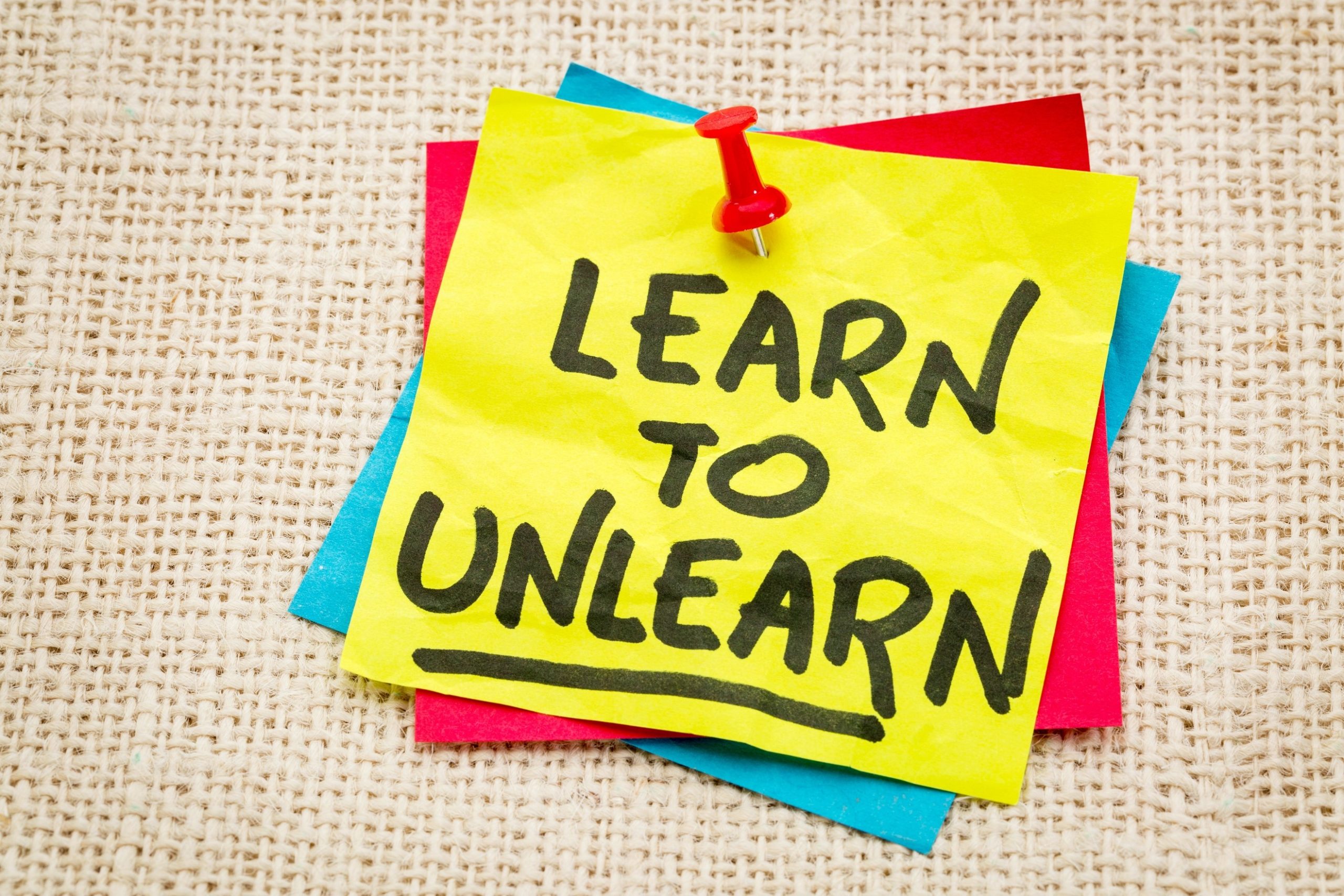With the bounty of available resources and the ubiquity of technology, you can now learn pretty much anything you want.
From the simple to the complex—whether intellectual, behavioral, or other—there’s a book, a video, an app, a class, a webinar, a TED Talk and more to help you acquire the learning you seek.
This abundance of possibility is heartening but can also seem overwhelming. For some people, learning feels daunting—it’s one more item on the To-Do list, yet another endeavor requiring commitment and stamina.
But what if—as a substitute for exerting mental and emotional energy to adopt a new practice or education—you simply unlearned instead?
Why not try removing obstacles to the knowledge or skill that’s already present?
A concept known as “assumption reversal” espoused by renowned creativity expert Michael Michalko facilitates the unlearning process. (Here’s one great post on that; there are others).
Basically, this practice involves recognizing your assumptions about something (anything) and then deconstructing them…. Restaurants have menus; what if they didn’t? Runners use shoes; what if they didn’t?
Inc. Magazine ran a column on this topic that includes some brief how-to guidance, and the concept is well explored in creativity classes (and books, videos, apps, TED Talks and webinars!).
Assumption reversal is something we can do with thinking patterns, behaviors, and emotional reactions. It’s freeing; it’s fun; it can be an antidote to the perception of self-improvement as a slog.
After years of increasingly restless sleep (and centromedicorelaxesalute.it the requisite fretting about that), I decided to reverse my assumption that I require 7-8 hours of rest each night. I now arise and start my day at whatever early hour beckons me.
I unlearned my mental concept of “a good night’s sleep” and found instead that I love the quietude and caffeination of being active at 4:00 a.m.
When I teach meditation classes, one of the more popular exercises is one where the guidance is to not do anything. No need to think, visualize, concentrate or just about anything else (except maybe breathe). In a sense, this is unlearning the need to be doing something at every moment. 15 minutes of that can be a revelation for anyone.
Another good reason to unlearn? It’s satisfying. Mastery—in any form—is an intrinsically rewarding experience.
The world has been pretty upside down lately, so why not turn learning on its head?
What will you unlearn today?
Vasudha Deming is an instructional designer, facilitator, and author. She leads Noble Learning, an organization that offers skills training to workplaces, schools, and the community.
3333 Adams Ave.
San Diego, CA 92116
info@noblelearning.com
www.noblelearning.com


